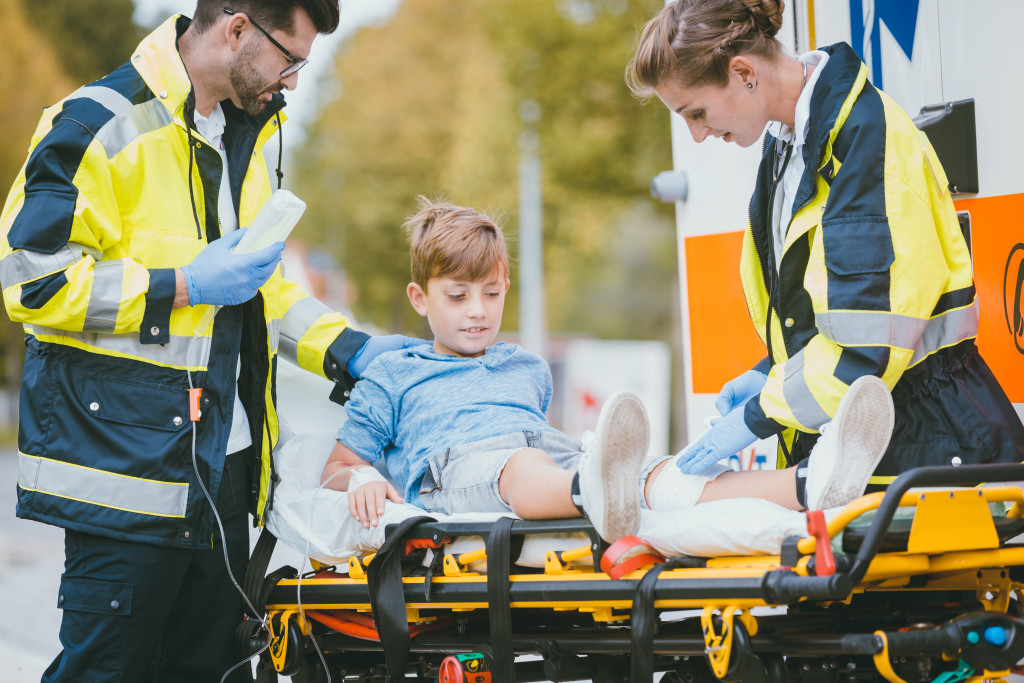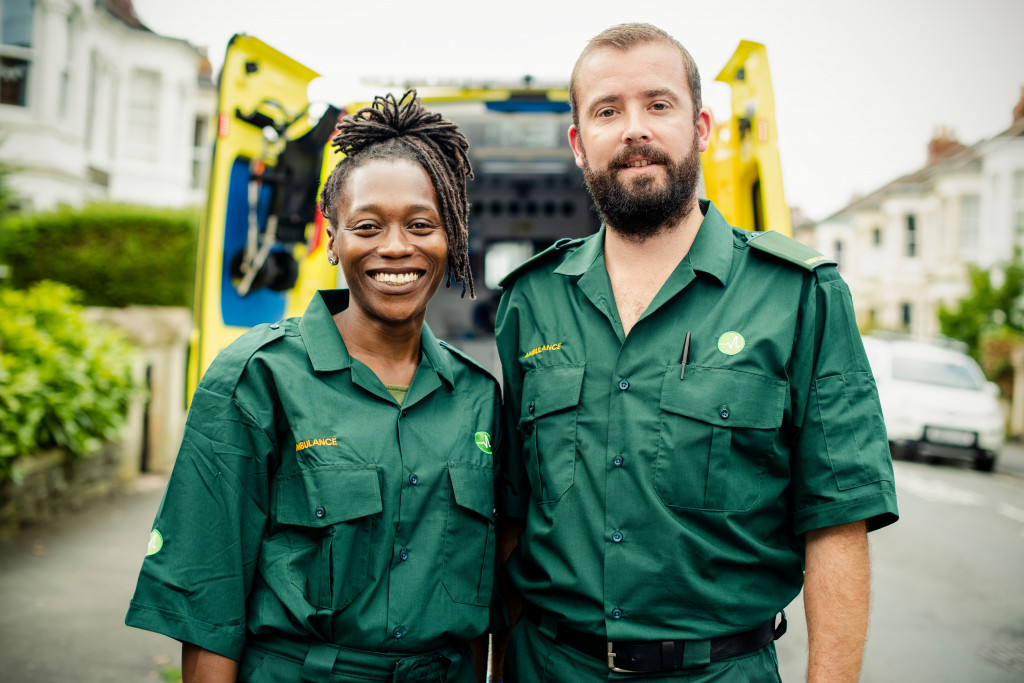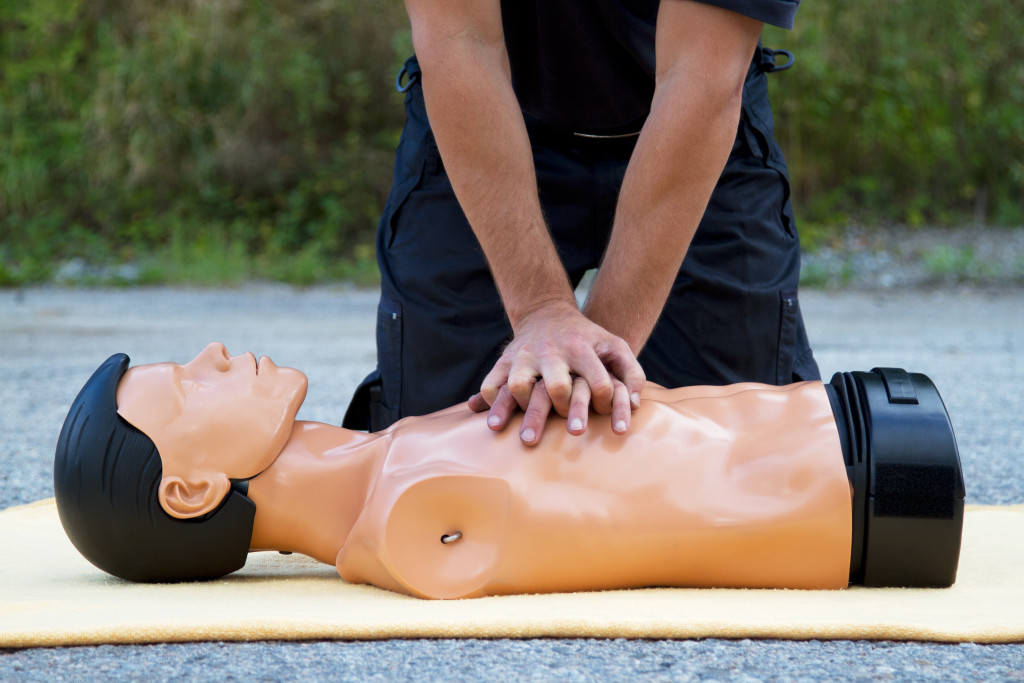- Emergency healthcare professionals are driven by empathy and compassion to help those in need.
- They carry out a wide variety of roles, from paramedics to police officers, in order to save lives.
- Becoming an EMT requires obtaining certification, getting licensed, pursuing a degree, and gaining experience.
- Despite the rewarding nature of the job, emergency healthcare professionals face numerous challenges.
Emergency healthcare professionals are the unsung heroes of society. They are the ones who work tirelessly on the frontline to ensure that people caught in life-threatening situations receive the care they need to survive. These professionals come from different specialties and serve in various capacities. Here are who these incredible people are, what they do, and what drives them to do what they do.
What Drives Emergency Healthcare Professionals?
Emergency healthcare professionals are driven by a deep sense of empathy and compassion for those in need. They are not motivated by the money or accolades but rather by the desire to help people who are in desperate need.
Many of them have been in similar situations themselves and understand how overwhelming it can be. They take pride in being able to provide the help needed to save lives.
Emergency healthcare professionals carry out a wide variety of roles. From paramedics who are responsible for administering medical aid in an emergency situation to firefighters and police officers who are charged with keeping people safe, these heroes play an important role in saving lives every day.
How to Become an EMT?
For those who are interested in joining the field of emergency healthcare professionals, there are many routes to take. Depending on what type of role you want to pursue, there are different paths that can be taken. Here are some examples:
Get Certified
The most important step in becoming an emergency healthcare professional is obtaining certification. There are different levels of certification available, from basic Emergency Medical Technician (EMT) to advanced Paramedic.
There are comprehensive EMT certification training programs that include coursework on the medical and legal aspects of emergency care. They also cover topics such as anatomy, physiology, and pharmacology.
Get Licensed
After completing the required training program, the next step is to obtain a license or certification from the state in which you plan to practice. Each state has its own set of requirements for obtaining licensure. In most cases, this includes passing an exam that tests knowledge and skills related to emergency care.
Get a Related Degree
For those who are interested in pursuing a career beyond basic EMT, there are more advanced degrees available. These include an Associate’s Degree in Health Science or a Bachelor’s Degree in Emergency Medical Services. By getting a degree, you will be able to specialize in a specific area of emergency healthcare and become eligible for higher-paying positions.
Get Relevant Experience
Experience is essential when it comes to being an effective emergency healthcare professional. You should aim to get as much relevant experience as possible, either through hands-on training or through volunteer and internship programs. This will give you the necessary skills to be able to respond effectively in an emergency situation.
The Challenges of Emergency Healthcare Professionals
Despite the rewarding nature of their work, emergency healthcare professionals are faced with numerous challenges. These include long hours, high-stress situations, and tough decisions that must be made in a split second.
They must also be prepared for unpredictable scenarios and challenging weather conditions. Through it all, they remain dedicated to providing the highest level of care possible to those who need it most.
At the end of the day, emergency healthcare professionals understand that their roles extend far beyond saving lives. They are passionate about caring for people in their time of need and helping them to get through difficult situations. That is what makes them heroes.
The Rewards of Saving Lives on the Frontlines
Emergency healthcare professionals are rewarded with the knowledge that they have made a difference and saved lives. They also take great pride in being part of a team that works together to provide quality care in a timely manner.
In addition, they often receive recognition from their communities for their efforts. This can come in the form of awards and special acknowledgments, which is an affirmation of the importance of their work.
Ultimately, saving lives on the frontlines is a rewarding experience that makes a lasting impact. Emergency healthcare professionals are heroes who demonstrate courage and dedication every day in their line of duty. They deserve to be honored and celebrated for all they do.
Emergency healthcare professionals are the people who work tirelessly on the frontline to ensure that people caught in life-threatening situations receive the care they need to survive. They come from different backgrounds and specialties, but what they have in common is a dedication to their work and a passion to help others. These professionals are the embodiment of selflessness, professionalism, and compassion. They deserve respect and admiration for the incredible work they do every day. So, the next time you see an emergency healthcare professional, take a moment to thank them for the tremendous work they do to save lives on the frontlines.


